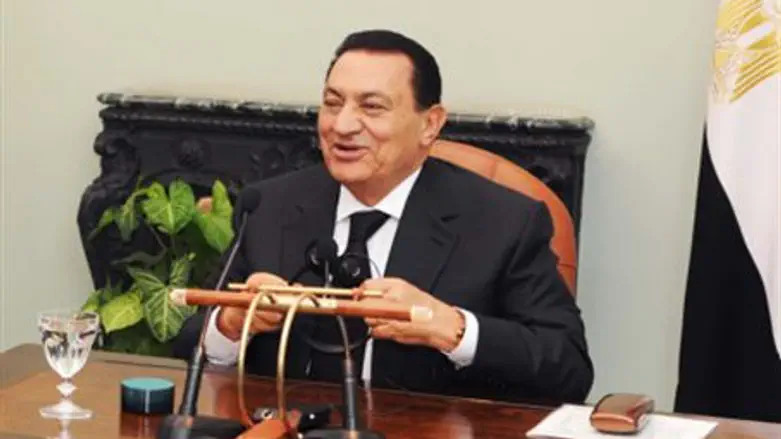
Polls opened Sunday in Egypt for the second round of parliamentary elections despite a boycott by two major opposition parties, both of which have accused the ruling National Democratic Party (NDP) of cheating in the first round of voting. The NDP is expected to sweep the elections.
The two major Egyptian opposition parties, the Muslim Brotherhood and Wafd, withdrew after official results from the first round of parliamentary elections showed the NDP winning 95% of the seats determined. 221 seats were won in the first round, while 283 parliamentarians will be decided in a second vote after no candidate passed the 50% mark in the first vote.
The Muslim Brotherhood, which held 20% of the seats in the outgoing parliament, did not win a single seat in the first round of voting.
NDP leaders insist that the first round of voting was fair, and say the Muslim Brotherhood's losses reflect a decline in popularity.
The Egyptian Gazette reported that poll monitors were barred from entering voting stations in at least six cities. In addition, Egyptian police carried out an arrest campaign targeting the Muslim Brotherhood prior to elections, arresting hundreds of candidates and political activists.
An Election Commission spokesman admitted that there had been reports of “irregularities” in many polling stations, the alleged issues had not affected the outcome of the vote.
Coptic Christians, who have faced growing hostility from sectors of the Muslim majority, told reporters that they were not excited by poll results despite the expectation for Islamist losses. While the openly Islamist party faces a serious decline in representation, the NDP has become increasingly Islamist in an attempt to woo voters, they said.
“The government has succeeded in Islamising society... They are using religion to get the support of ordinary people,” strategic studies expert Emad Gad told AFP. Discrimination is “systematic and comprehensive,” he added.
Coptic activist Nagib Gibrail gave examples, saying that Copts face restrictions on the construction of churches, that the school system teaches pupils about Muslim culture exclusively, that those who incite against Christians are not punished, and that Muslims are prohibited to convert to Christianity.
The United States Commission on International Religious Freedom expressed concern for Egypt's Coptic Christian minority several days ago, and criticized incitement by Muslim clerics and state media “espousing sectarian hatred and violence.” The commission noted that recent Muslim-Christian tensions were timed to coincide with the parliamentary elections.
Less than 2% of the candidates in this election were Christian, and 1% or less of incoming parliamentarians will be Christian. In contrast, Coptic Christians comprise as much as 10% of the country's population.